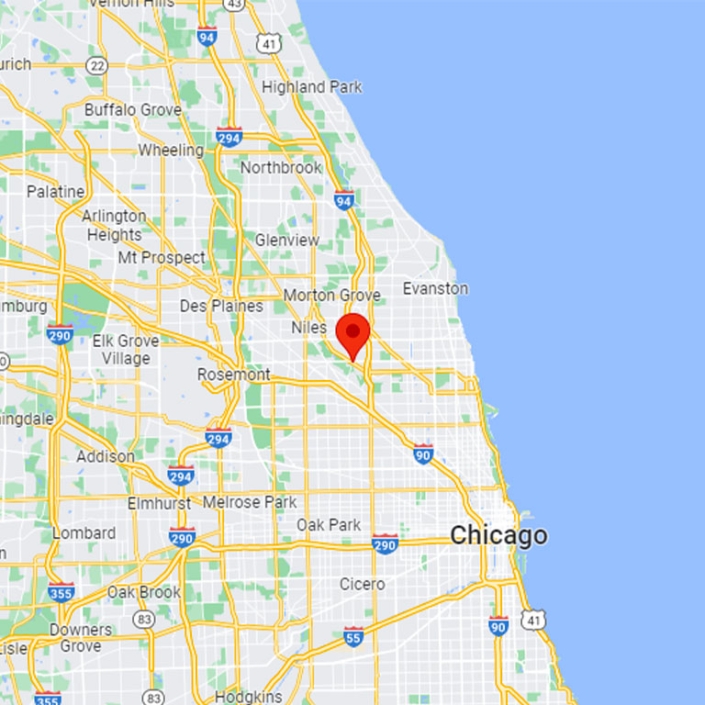Root Canals
 The outer part of the tooth may be the aspect you see. However, the underlying root of the tooth is what provides structure, maintains stability, and protects the overall health of the tooth. Unfortunately, sometimes the root of the tooth can be affected by decay or damage. In these situations, a root canal in Chicago, IL, can be one of the best ways to preserve the tooth so it does not have to be extracted. If you expect to need a root canal, knowing more about the procedure and what to expect at Mindful Dental can help.
The outer part of the tooth may be the aspect you see. However, the underlying root of the tooth is what provides structure, maintains stability, and protects the overall health of the tooth. Unfortunately, sometimes the root of the tooth can be affected by decay or damage. In these situations, a root canal in Chicago, IL, can be one of the best ways to preserve the tooth so it does not have to be extracted. If you expect to need a root canal, knowing more about the procedure and what to expect at Mindful Dental can help.
What Is a Root Canal Exactly?
A root canal is a dental procedure aimed at treating infected or severely damaged teeth. This process can preserve a tooth that would otherwise have to be extracted to prevent further threats to your oral health.
A typical root canal involves removing the infected or inflamed pulp (soft tissue inside the tooth) and thoroughly cleaning and disinfecting the root canal system. Once cleaned, the canal is filled with a biocompatible material, typically gutta-percha, to seal the space and prevent further infection. In some cases, small pins may be placed to add further stability to the tooth’s root.
Finally, a crown is often placed over the treated tooth to restore its function and protect it from future damage. Root canals help alleviate pain, save the natural tooth, and prevent the need for extraction.
The Root Canal Treatment Process Explained
Each root canal may be slightly unique, depending on individual needs and circumstances.
The general steps to expect include:
- The dentist examines the tooth and takes X-rays to assess the extent of damage or infection in the pulp (the soft tissue inside the tooth).
- Local anesthesia is administered to numb the tooth and surrounding area to ensure the procedure is pain-free and you remain comfortable.
- A rubber dam or similar device is placed around the tooth to keep it dry and free of saliva during the procedure.
- The dentist creates a small opening in the tooth’s crown with a small dental drill to access the pulp chamber and root canals.
- Using special tools, the dentist removes the infected or damaged pulp tissue and carefully cleans and shapes the inside of the root canals to prepare them for filling.
- Antibacterial medication may be applied inside the tooth to eliminate any remaining bacteria and reduce the risk of infection once the tooth is sealed.
- The root canals are filled with a biocompatible material to seal them off and prevent bacteria from re-entering. Pins may be placed to add additional support for the tooth.
- The access opening in the tooth’s crown is sealed with a temporary or permanent filling. In some cases, a temporary dental crown may be placed over the tooth to provide additional protection and restore its function and outer appearance.
- After the root canal treatment is complete and any necessary healing has occurred, a permanent restoration, such as a dental crown, is placed on the tooth to protect it and restore its appearance and function for the long term.
Root Canal Aftercare and What to Expect
Root canals are one of the most common and successful modern dental procedures. Most patients never have an issue with a root canal once it is completed. In fact, the procedure can immediately relieve the pain that you have been experiencing if the tooth has been damaged or severely decayed. Nevertheless, immediately after the procedure, you may experience:
- Mild swelling and inflammation of the soft tissue surrounding the tooth
- Slight sensitivity to air or warm and cold temperatures
- Mild discomfort in the jaw area where the procedure was performed
The dentist will likely instruct you to take over-the-counter pain relievers for discomfort. However, any symptoms should subside within a few days. Once fully healed, continue your usual oral hygiene routines, and be sure to let the dentist know about any ongoing swelling or discomfort.
Seek Advice from a Skilled Dentist About Root Canals
If you have a tooth that is deteriorating, the faster you see a dentist in Chicago, IL, the higher the likelihood the tooth can be saved with a root canal or other procedures. Reach out to our team at Mindful Dental to schedule an appointment today.


